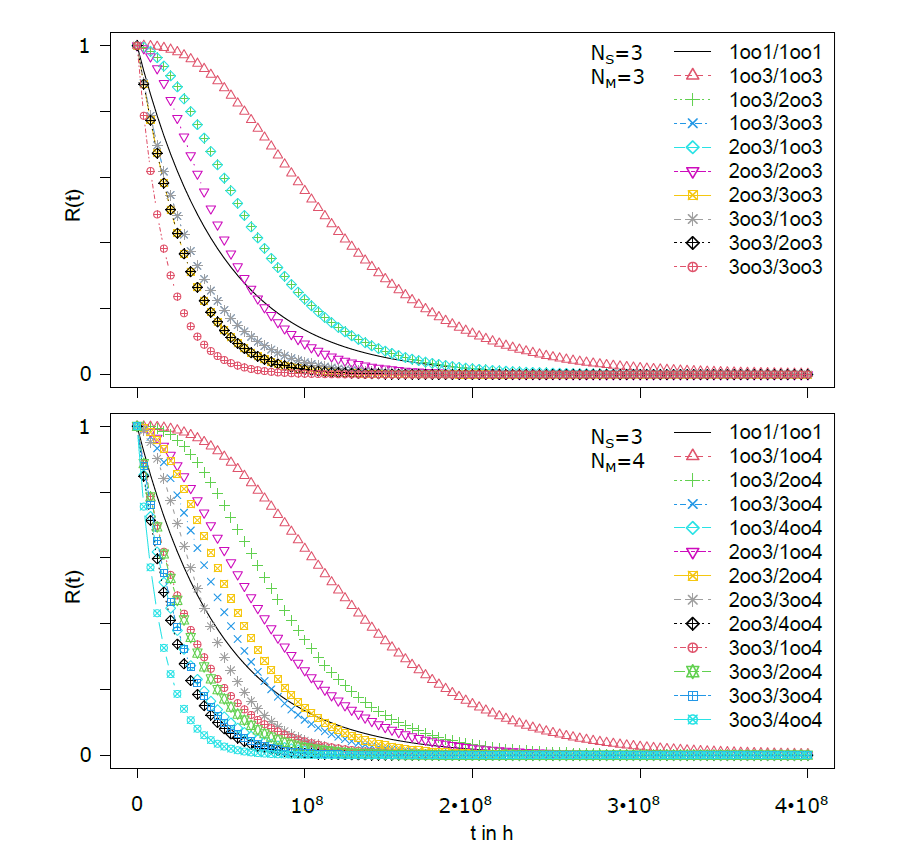System Reliability Engineering
The advent of Industry 4.0 has brought about a paradigm shift in reliability engineering, particularly in the domains of predictive maintenance and real-time condition monitoring. This research focus the state-of-the-art techniques leveraging data-driven approaches and machine learning algorithms in addressing the challenges posed by the evolving industrial landscape. Advancements in sensor technology, wireless communication, and computational capabilities facilitate continuous monitoring of equipment health and performance. With the current proliferation of interconnected sensors and the exponential growth of data streams, predictive maintenance has transitioned from traditional time-based strategies to condition-based methodologies, allowing for proactive interventions and cost savings.
Machine learning algorithms such as deep learning, support vector machines, and random forests, play a pivotal role in extracting insights from vast datasets, enabling predictive modeling, anomaly detection, and decision support systems. Moreover, the integration of data analytics platforms with cloud computing infrastructure has further enhanced scalability, flexibility, and accessibility, fostering the development of intelligent maintenance systems. However, challenges persist, including data quality assurance, model interpretability, and cybersecurity concerns. Future research directions encompass the fusion of multi-source data, the development of hybrid modeling techniques, and the exploration of edge computing for decentralized decision-making. Overall, the convergence of data-based approaches and machine learning techniques represents a transformative force in reliability engineering, empowering organizations to embrace proactive maintenance strategies and unlock the full potential of Industry 4.0.
Redundant architectures like MooN (M out of N) and other parallel and majority architectures stand as pillars in safety-critical industries such as aerospace, rail transportation, nuclear energy, and autonomous driving. These architectures, designed with fault tolerance and self-diagnosis capabilities, ensure uninterrupted operation even in the face of component failures. Fail-operational systems maintain functionality despite faults, crucial for applications where downtime is not an option, like in autonomous vehicles. Fail-safe systems prioritize safety by reverting to a predefined safe state upon failure, essential for nuclear reactors and critical transportation systems. Dynamic reconfiguration allows systems to adapt in real-time, redistributing tasks and resources to maintain performance and safety. As these industries demand ever-higher standards of reliability and safety, the continued advancement of redundant architectures and fault-tolerant systems promises to complex technical systems against potential hazards.
- 2024
- T. M. Julitz, A. Tordeux, N. Schlüter and M. Löwer, "Reliability of Redundant M-Out-Of-N Architectures With Dependent Components: Comprehensible Approach With Monte Carlo Simulation" in Advances in Reliability, Safety and Secruity. ESREL 2024 Monograph Book Series, Kołowrocki, Krzysztof and Dabrowska, Ewa, Eds. Gydnia: Polish Safety and Reliability Association, 2024, pp. 97—106.
- 2023
- T. M. Julitz, A. Tordeux and M. Löwer, "Computer-aided design of fault-tolerant hardware architectures for autonomous driving systems", Proceedings of the Design Society, vol. 3, pp. 1047-1056, 2023. Cambridge University Press.
- B. Khelfa, I. Ba and A. Tordeux, "Predicting highway lane-changing maneuvers: A benchmark analysis of machine and ensemble learning algorithms", Physica A: Statistical Mechanics and its Applications, vol. 612, pp. 128471, 2023.
- 2022
- R. Subaih, M. Maree, A. Tordeux and M. Chraibi, "Questioning the anisotropy of pedestrian dynamics: An empirical analysis with artificial neural networks", Applied Sciences, vol. 12, no. 15, pp. 7563, 2022. MDPI.
- T. M. Julitz, A. Tordeux and M. Löwer, "Reliability of Fault-Tolerant System Architectures for Automated Driving Systems" in Proceedings of the 32nd European Safety and Reliability Conference (ESREL 2022), 2022, pp. 120-127.
- R. Korbmacher and A. Tordeux, "Review of pedestrian trajectory prediction methods: Comparing deep learning and knowledge-based approaches", IEEE Transactions on Intelligent Transportation Systems, vol. 23(12), pp. 24126-24144, 2022. IEEE.
- 2021
- B. Khelfa and A. Tordeux, "Comparing rule-based and data-based approaches for lane-change prediction" in Proceeding of 30th European Safety and Reliability (ESREL) Conference, 2021.
- B. Khelfa and A. Tordeux, "Lane-changing prediction in highway: Comparing empirically rule-based model MOBIL and a naive Bayes algorithm" in 2021 IEEE International Intelligent Transportation Systems Conference (ITSC), 2021, pp. 1598-1603.
- B. Khelfa and A. Tordeux, "Understanding and Predicting Overtaking and Fold-Down Lane-Changing Maneuvers on European Highways Using Naturalistic Road User Data" in 2021 IEEE Intelligent Vehicles Symposium Workshops (IV Workshops), 2021, pp. 168-173.
- 2020
- B. Khelfa and A. Tordeux, "Extended Longitudinal Motion Planning for Autonomous Vehicles on Highways Including Lane Changing Prediction" in Traffic and Granular Flow 2019, Springer, 2020, pp. 495-503.
- 2019
- A. Tordeux, M. Chraibi, A. Seyfried and A. Schadschneider, "Artificial neural networks predicting pedestrian dynamics in complex buildings" in Workshop on Stochastic Models, Statistics and their Application, 2019, pp. 363-372.
- A. Tordeux, M. Chraibi, A. Seyfried and A. Schadschneider, "Prediction of pedestrian dynamics in complex architectures with artificial neural networks", Journal of Intelligent Transportation Systems, vol. 24, no. 6, pp. 556-568, 2019. Taylor & Francis.
- A. Tordeux, M. Chraibi, A. Seyfried and A. Schadschneider, "Prediction of pedestrian speed with artificial neural networks" in International Conference on Traffic and Granular Flow, 2019, pp. 327-335.







